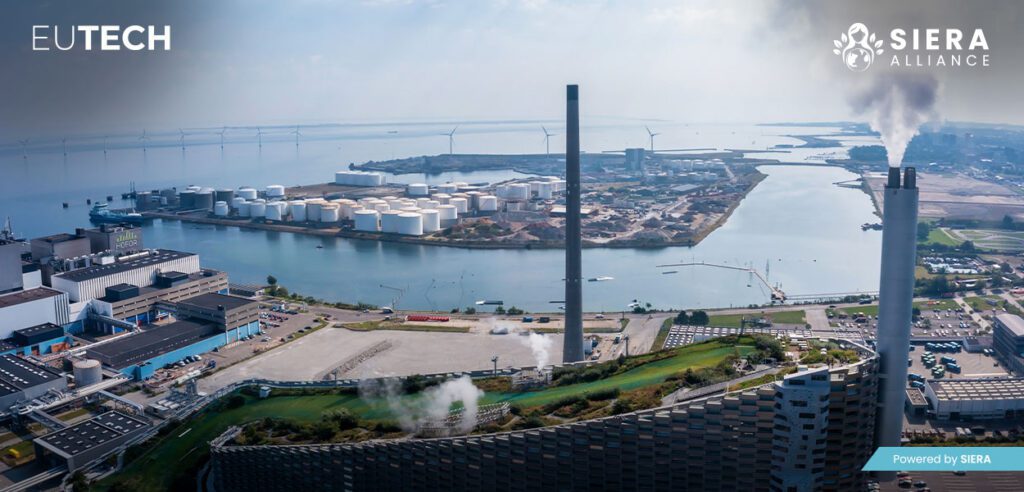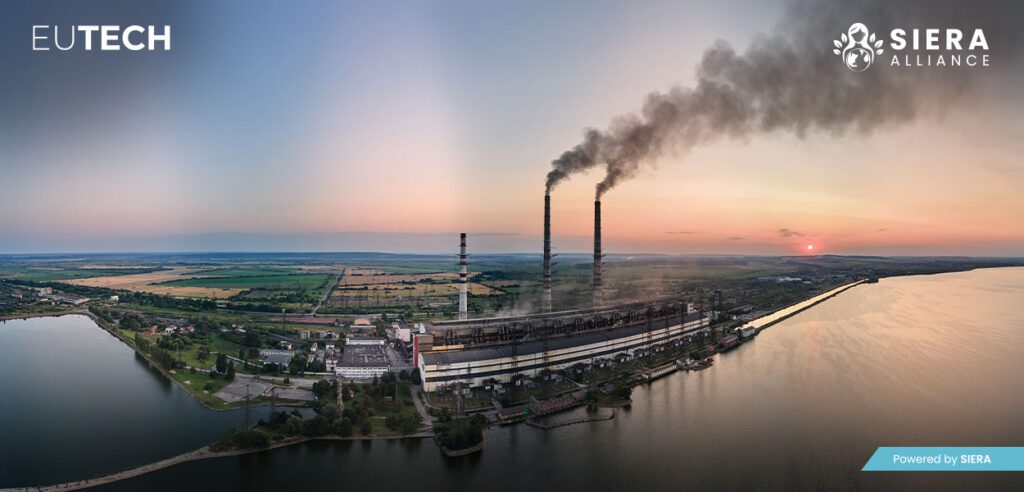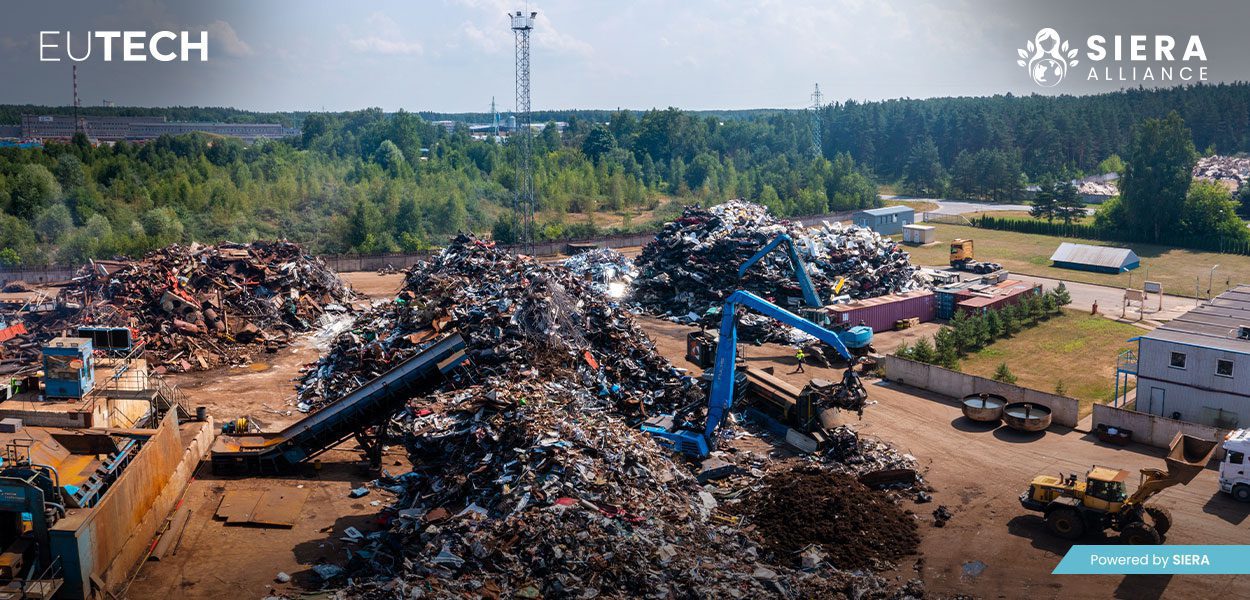What Are Advanced Pollution Control Techniques in Tech Manufacturing?
Tech manufacturing is at the forefront of industrial innovation, but its environmental impact is significant. Addressing issues such as industrial emissions, water pollution, and hazardous waste requires adopting advanced pollution control techniques. From industrial wastewater treatment to integrating clean technology, these methods are critical for achieving environmental sustainability and ensuring environmental compliance.
On 2nd October 2024, the EUTECH – Technology Council powered by SIERA Alliance hosted a webinar titled “Advanced Pollution Control Techniques in Tech Manufacturing.” Moderated by Dr. Igor Gladkov, Director at the European Technology Chamber, the event highlighted actionable strategies to minimize pollution while maintaining efficiency in manufacturing. Himanshu Kumar, SIERA Alliance expert, delivered the keynote, focusing on aligning industrial practices with ESRS E2 standards.

Key Challenges in Pollution Control for Tech Manufacturing
The webinar featuring panelists, Pina Schlombs (Sustainability Lead at Siemens Digital Industries Software), Rafael Navarro (Sustainability and Energy Manager at Johnson Controls), and Clara Estevez (Environmental Consultant at CircularWorks), highlighted the following pressing challenges:
1. Air Pollution from Energy Use
The tech manufacturing sector consumes massive amounts of energy, primarily from fossil fuels. This reliance results in significant emissions of CO2, NOx, and SOx, which contribute to air pollution. According to the International Energy Agency (IEA), energy-related CO2 emissions in manufacturing increased by 2% in 2021, underscoring the urgency for greener solutions.
2. Industrial Wastewater Pollution
Manufacturing processes often discharge untreated wastewater containing heavy metals, chemicals, and other hazardous substances into the environment. The tech sector contributes to approximately 20% of global industrial water pollution, with serious consequences for ecosystems and public health.
3. E-Waste Management
E-waste generation is a growing challenge, with over 53 million tons produced annually worldwide. Only 17% of this waste is properly recycled, leaving harmful substances like mercury and lead to pollute land and water. If left unchecked, e-waste production is expected to rise by 21% by 2030.
4. Soil and Groundwater Contamination
Improper disposal of hazardous waste leads to the contamination of soil and groundwater, rendering these resources unusable for agriculture and human consumption. In the EU alone, over 200,000 polluted sites have been identified.
5. Carbon Emissions from Manufacturing Processes
Tech manufacturing accounts for approximately 23% of global emissions, making carbon footprint reduction a top priority for achieving environmental sustainability in business.
Practical Solutions and Recommendations
The panelists shared a range of actionable solutions to address these challenges, focusing on innovation and sustainability:
1. Implement Advanced Wastewater Treatment Systems
Technologies like zero-liquid discharge (ZLD) and membrane bioreactors (MBR) help recycle industrial wastewater and eliminate harmful pollutants. ZLD systems are particularly effective, enabling nearly 100% wastewater recovery and supporting environmental compliance.
2. Adopt Circular Economy Practices
By embracing circular economy models, tech manufacturers can reduce waste and promote resource efficiency. Programs that facilitate the recycling of e-waste and extend product lifecycles help recover valuable materials and reduce landfill contributions.
3. Transition to Clean Technology
Integrating clean technology into manufacturing processes can significantly reduce emissions. Examples include the adoption of energy-efficient equipment, renewable energy systems, and advanced air filtration technologies.
4. Strengthen Industrial Waste Management
Effective industrial waste management ensures the safe handling, treatment, and disposal of hazardous materials. Digital tools such as IoT sensors and data analytics can provide real-time monitoring of waste streams, ensuring compliance with environmental regulations.
5. Leverage Carbon Capture and Storage (CCS)
CCS technologies capture up to 90% of CO2 emissions from manufacturing processes, storing them safely to prevent their release into the atmosphere. This solution is particularly effective in reducing the industry’s overall carbon footprint.

Transformation Opportunities in Tech Manufacturing
The adoption of advanced pollution control techniques offers transformative benefits for the tech manufacturing industry:
| Transformation Area | Benefits | Impact |
| Enhanced Environmental Compliance | Ensures adherence to stringent environmental regulations, reducing risks of penalties. | Strengthens corporate reputation and builds stakeholder trust. |
| Resource Efficiency | Promotes the reuse and recycling of materials, reducing dependency on raw resources. | Saves up to 30% on material costs through circular economy practices. |
| Cost Savings | Reduces operational costs by optimizing energy and water usage. | Companies using ZLD systems save up to 20% on water management expenses. |
| Market Competitiveness | Aligns with environmental sustainability in business, attracting eco-conscious investors. | Increases market share by 15% for companies prioritizing sustainable practices. |
| Stronger Community Relations | Demonstrates commitment to mitigating environmental impact. | Builds goodwill among local communities and regulatory authorities. |
Best Practices for Pollution Control in Tech Manufacturing
- Conduct Regular Environmental Audits: Perform routine evaluations of emissions and waste streams to identify areas for improvement and ensure ongoing compliance with environmental regulations.
- Integrate Digital Monitoring Tools: Leverage IoT sensors and data analytics to track and manage pollution levels in real-time, enhancing operational efficiency.
- Collaborate with Stakeholders: Partner with suppliers, policymakers, and industry peers to implement best practices for sustainable manufacturing and pollution control.
- Prioritize Employee Training: Educate employees about environmental sustainability and equip them with tools to implement green practices effectively.
Upcoming Events and Opportunities
Stay updated on future events hosted by the EUTECH Technology Council powered by SIERA Alliance. For further insights into pollution control techniques and networking opportunities, explore the SIERA Alliance Event Calendar. Join us in advancing sustainability and innovation in tech manufacturing.
Conclusion: A Sustainable Future for Tech Manufacturing
Implementing advanced pollution control techniques is essential for achieving environmental sustainability in tech manufacturing. By adopting clean technology, enhancing industrial waste management, and transitioning to circular economy models, the sector can significantly reduce its ecological footprint while meeting global sustainability goals. Collaborating with organizations like SIERA Alliance and EUTECH enables firms to implement responsible and impactful solutions that benefit both the planet and the industry.
To learn more about how SIERA Alliancecan support your journey toward sustainable tech operations, visit our website. Join us in building a responsible future for technology.








